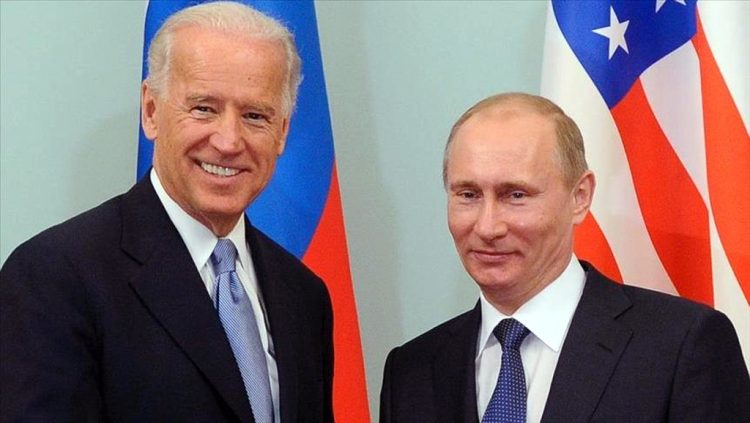A Comprehensive Analysis of Russia vs. USA: Unraveling the Complex Relationship

The geopolitical landscape of the 21st century is defined by the intricate dance between global superpowers, and at the forefront of this complex interplay are Russia and the United States. The historical backdrop of the Cold War, ideological differences, and contemporary geopolitical challenges have shaped the relationship between these two nations. This article aims to explore the multifaceted dimensions of the Russia vs. USA dynamic, delving into political, economic, military, and cultural aspects that contribute to the complexities of their interaction.
Historical Context:
The roots of the Russia vs. USA rivalry can be traced back to the Cold War era, a period marked by ideological differences between communism and capitalism. The USA, as the leader of the Western bloc, and the Soviet Union, representing the Eastern bloc, engaged in a protracted ideological and geopolitical struggle. While the Cold War officially ended with the dissolution of the Soviet Union in 1991, the remnants of this historical enmity continue to influence the relationship between Russia and the USA.
Political Dynamics:
The political relationship between Russia and the USA is characterized by a delicate balance of cooperation and competition. Both nations engage in diplomatic dialogues on various global issues, such as arms control, counter-terrorism, and climate change. However, underlying tensions persist, fueled by disputes over issues like Ukraine, Syria, and cyber warfare allegations. The imposition of sanctions by the USA on Russia and vice versa further adds a layer of complexity to their political interactions.
Economic Interdependence:
Economic ties between Russia and the USA are intricate, with energy resources playing a significant role. Russia, as one of the world’s leading exporters of oil and natural gas, has a substantial impact on global energy markets. The USA, on the other hand, is a major consumer of energy. This interdependence, coupled with trade relations in various sectors, creates a complex economic web. However, economic sanctions imposed by the USA, particularly in response to geopolitical events, strain this relationship and contribute to economic challenges for both nations.
Military Posture:
The military dimension of the Russia vs. USA relationship is characterized by a balance of power that echoes the Cold War era. Both nations maintain formidable nuclear arsenals, and their military capabilities extend beyond traditional warfare to include cyber capabilities. The arms race, while not as overt as during the Cold War, continues in the form of technological advancements and strategic posturing. Tensions rise when military maneuvers, such as NATO exercises or Russian border patrols, stoke concerns about a potential escalation.
Global Influence:
Russia and the USA exercise significant influence on the global stage, albeit through different means. The USA, as a longstanding superpower, has established a network of alliances and international organizations that promote its interests. Russia, while not as globally entrenched, strategically employs its influence in regional conflicts and through alliances with nations that share common interests. The ongoing struggle for influence in regions like the Middle East and Eastern Europe adds a layer of complexity to their global interaction.
Cybersecurity Challenges:
In the 21st century, the battleground has expanded into the digital realm, with both Russia and the USA engaging in cyber warfare and espionage. Accusations of hacking, interference in elections, and the weaponization of information have become recurrent themes in their relationship. The cybersecurity landscape remains a volatile arena, with both nations investing heavily in technological capabilities to gain an upper hand in this silent but potent conflict.
Cultural Exchanges and People-to-People Ties:
Amidst the geopolitical tensions, cultural exchanges and people-to-people ties serve as a bridge between Russia and the USA. Educational programs, artistic collaborations, and sports events foster a sense of shared humanity and understanding. Despite political differences, cultural interactions contribute to a nuanced perspective, highlighting the diversity within each nation and challenging simplistic stereotypes.
Conclusion:
The Russia vs. USA relationship is a multifaceted tapestry woven with historical threads, political intricacies, economic dependencies, military posturing, global influence, cybersecurity challenges, and cultural exchanges. While cooperation on certain global issues is evident, underlying tensions persist, fueled by historical grievances and contemporary geopolitical realities. Navigating this complex relationship requires a delicate balance of diplomacy, strategic foresight, and a commitment to finding common ground amidst divergent interests. As the global landscape evolves, the dynamic interplay between Russia and the USA will continue to shape the course of international relations in the 21st century.
-
What is the historical background of the Russia vs. USA rivalry?
The rivalry between Russia and the USA has its roots in the Cold War, a period of ideological and geopolitical struggle between the communist Eastern bloc, led by the Soviet Union, and the capitalist Western bloc, led by the USA. While the Cold War officially ended in 1991, the historical animosity continues to influence their relationship.
-
How do political dynamics shape the relationship between Russia and the USA?
The political relationship is characterized by a mix of cooperation and competition. Both nations engage in diplomatic dialogues on various global issues, but tensions arise over disputes such as Ukraine, Syria, and accusations of cyber warfare. The imposition of sanctions further complicates their political interactions.
-
What is the economic interdependence between Russia and the USA?
Economic ties are complex, with energy resources playing a significant role. Russia is a major exporter of oil and natural gas, impacting global energy markets. The USA, a significant energy consumer, engages in trade relations with Russia. However, economic sanctions imposed by both nations contribute to challenges in their economic relationship.
-
How does the military posture of Russia and the USA contribute to the relationship?
The military dimension reflects a balance of power reminiscent of the Cold War. Both nations maintain formidable nuclear arsenals, and military capabilities extend to cyber warfare. Military maneuvers, such as NATO exercises, contribute to tensions, raising concerns about a potential escalation.
-
How do Russia and the USA exert global influence?
Both nations wield significant influence globally, though through different means. The USA, as a longstanding superpower, leverages alliances and international organizations. Russia strategically employs its influence in regional conflicts and forms alliances with nations sharing common interests, contributing to a global power struggle.
-
What are the cybersecurity challenges in the Russia vs. USA relationship?
The 21st-century battleground includes the digital realm, with both nations engaging in cyber warfare and espionage. Accusations of hacking, election interference, and information warfare are recurrent themes. Cybersecurity remains a volatile arena, with both nations investing heavily in technological capabilities.
-
How do cultural exchanges and people-to-people ties contribute to the relationship?
Despite geopolitical tensions, cultural exchanges and people-to-people ties serve as a bridge between Russia and the USA. Educational programs, artistic collaborations, and sports events foster understanding and challenge stereotypes, emphasizing shared humanity amidst political differences.
-
Is there ongoing cooperation between Russia and the USA on global issues?
Yes, despite underlying tensions, both nations cooperate on various global issues such as arms control, counter-terrorism, and climate change. However, the extent of cooperation is influenced by the evolving geopolitical landscape and the specific interests of each nation.
-
How do regional conflicts impact the Russia vs. USA relationship?
Regional conflicts, especially in areas like the Middle East and Eastern Europe, contribute to the complexity of their relationship. Both nations seek to exert influence in these regions, leading to strategic maneuvering and occasional clashes of interest.
-
What does the future hold for the Russia vs. USA relationship?
The future trajectory of their relationship is uncertain and depends on diplomatic efforts, global developments, and the willingness of both nations to find common ground. Navigating the complexities will require ongoing dialogue, strategic foresight, and a commitment to addressing differences while fostering cooperation on shared challenges





